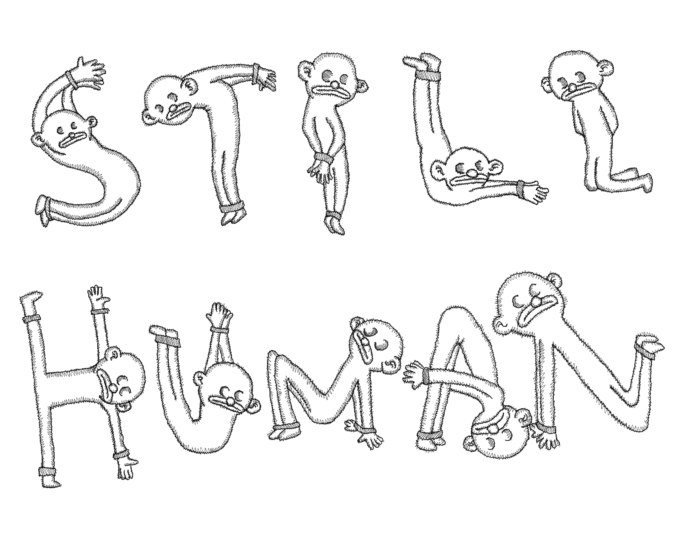Plato wrote “To prefer evil to good is not in human nature; and when a man is compelled to choose one of two evils, no one will choose the greater when he might have the less.”
The argument of innate human evil stretches back to the early days of the Greek and Roman renaissance. How can humans have the power to be so good and still commit atrocities against their fellow men? Is it in our nature, or are we taught to behave that way? Can we change? All of these questions circle in our heads when we watch the news and hear of bombings, mass shootings and war crimes such as torture. Torture, above all, incites questions of human morality — how can a human physically, mentally and emotionally abuse another person for their personal gain? America has always labeled itself as the “good guys,” but up until recently, we did not prove that to be true. The use of torture or “enhanced interrogation techniques” in the United States military is an example of just how hypocritical we can be in our treatment of other humans.
In 2014, a United States Senate report on CIA interrogations swept the country, shocking Americans with the number of grisly acts committed at CIA blacksites and prisons under U.S. control. For most of us, it is impossible to imagine being subject to any of these techniques — our view of torture is usually revolve around waterboarding or people being beaten senseless. This may seem extreme, but the reality is much worse — rectal rehydration, being squeezed into tiny boxes filled with all sorts of crawly creatures, being stripped of all clothing and tied into an unnatural position for days on end — the list goes on and on. Only recently have stories such as the movie “Zero Dark Thirty” revealed what happens behind the scenes, where prisoners have been deprived of humanity, brought to the brink of death and back again, all for the personal gain of American forces.
To some, this can be rationalized: The people being interrogated are possible terrorists, bad people who have tried to kill American citizens. Since 9/11, we have been on the defensive against Islamic extremists and other faceless monsters who threaten our safety. From our warm, comfortable homes, it is easy to generalize, stereotype, and sweep these dark, depressing topics into a corner for a later day.
The truth is, most Americans will never experience what it is like to be in a torture victim’s shoes. We are blessed to live in a place where we hold inalienable rights, and there is nothing wrong with that. What is wrong is forgetting about the humanity of the other side — the fact that these people, whether they have done bad things or not, have families, have homes, have a bed that they dream of going back to. They are people, just like us, and they experience a level of emotional, physical and psychological pain that most could never dream of. The New York Times recently wrote a piece about a retired Navy psychologist assigned to examine and treat prisoners incarcerated for war crimes in Guantanamo Bay (Gitmo) prison. The story, titled “Where even nightmares are classified: Psychiatric care at Guantanamo Bay,” is a case study in the effects of intense torture tactics. Navy Lt. Comdr. Shay Rosencrans tells of the untrustworthy, beaten down, broken patients, who suffered from hallucinations, nightmares, severe anxiety and many other Post Traumatic Stress Disorder (PTSD) symptoms.
It’s a novel concept, isn’t it — That a so-called “enemy combatant” could experience the same symptoms that American heroes wounded in battle experience? When you strip away the titles, the hatred and the misunderstandings between sides, each torture victim is human. They hurt, they mourn, they even feel joy. Whether a person is fighting for us or against us, they are still a person: As a society that holds so dearly to inalienable rights and self-evident truths, how can we validate depriving another human of these same rights and truths?
Matthew 5:43-47 says, “You have heard that it was said, ‘Love your neighbor and hate your enemy.’ But I tell you, love your enemies and pray for those who persecute you, that you may be children of your Father in heaven. He causes his sun to rise on the evil and the good, and sends rain on the righteous and the unrighteous. If you love those who love you, what reward will you get? Are not even the tax collectors doing that? And if you greet only your own people, what are you doing more than others? Do not even pagans do that?”
While not everyone in America subscribes to Christian values, there is a lesson to be learned from this passage — to be the “good guys” we must extend grace and mercy to those who may not do the same for us. Rise above, and prove that Plato was right when he said that to choose evil is not in our nature. Though the lesser of two evils may be leaving us vulnerable to extremist attacks, our moral and spiritual health will crumble under the weight of the greater. Torture is inhumane, and unless we want to lose the humanity we strip prisoners of, we need to set a precedent of intolerance for abusive interrogation techniques.






